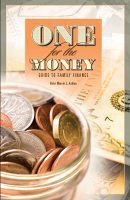Archive for the ‘Teachings from Church Leaders’ Category
2008 OCT General Conference – Sat. Morning: Elder L Tom Perry (Let Him Do It With Simplicity):
- Stress and anxiety can be caused by ups and downs of the economy and associated circumstances
- spoke of US housing crisis, rising fuel costs. Future is not predictable, but we must
- Encouraged us to return to a simple life and living within our means to reap the spiritual blessings that come from it.
- Told story of a man who went to live in a rural area for 2 years, not as a hermit, but to live simply to figure out the meaning of life.
- built his own home and reedom for $28.04. Planted a garden to sell food to sustain himself (made only $8.71).
- He enjoyed spirutual benefits of a simple lifestyle.
- He determined that to survive we need 4 things: Food, clothing, shelter and fuel.
Exerpts:
“All too often a family’s spending is governed more by their yearning than by their earning. They somehow believe that their life will be better if they surround themselves with an abundance of things. All too often all they are left with is avoidable anxiety and distress”
One of my favorite talks about debt. This talk made me get my act in gear regarding food storage. Its interesting that now, 10 years later the economies of North America are not doing very well. That rehearsal of Pharoah’s dream, with 7 years of plenty was truly prophetic.
http://www.lds.org/conference/talk/display/0,5232,89-1-22-20,00.html
Exerpts:
“…I am suggesting that the time has come to get our houses in order.
So many of our people are living on the very edge of their incomes. In fact, some are living on borrowings.
What a wonderful feeling it is to be free of debt, to have a little money against a day of emergency put away where it can be retrieved when necessary…..
I urge you, brethren, to look to the condition of your finances. I urge you to be modest in your expenditures; discipline yourselves in your purchases to avoid debt to the extent possible. Pay off debt as quickly as you can, and free yourselves from bondage. Read the rest of this entry »
“I would like to explain five principles of economic constancy…
Constancy #1: Pay an honest tithing…
Constancy #2: Live on less than you earn…
Constancy #3: Learn to distinguish between needs and wants…
Constancy #4: Develop and live within a budget…
Constancy #5: Be honest in all your financial affairs…”
The order of these suggestons is important. First you keep the commandments, then to change your desires, then you get to the mecahnics of a budget and continue honestly.
This old pamphlet from Marvin J Ashton is classic and still relevant today.
It outlines the basics of using a debt repayment schedule. The recommendation is to pay down the highest interest debt first, then take the money you were paying on that loan and put that money on the next highest interest loan. Keep doing this until all your debts are paid off.
This pamphlet was one of my first introductions to managing finances. The counsel is great, the method is great. I highly recommend it.
“How a couple handles money can make or mar their marriage.
What does make the difference, then, between couples who can handle finances with ease and those who can’t?
The experience of Latter-day Saint families I interviewed points to several principles of handling money:
1. Communicate! One spouse should never be unsure of what is going on with the finances. All but the most trivial decisions should be made together, combining the wisdom of both husband and wife.
2. Expect only what is reasonable. Money doesn’t come easily, especially early in marriage. Neither husband nor wife should expect to be able to spend as they did when they were single.
3. Budget! Plan ahead and follow the plan as closely as you can. Record where the money went. Unless you know where you really want the money to go, it won’t go there! But be prepared to adjust the budget to meet emergency and unplanned needs.
4. For most purchases, reject debt! The temptation to buy now and pay later must generally be avoided if a couple hopes to be financially secure. Do not borrow to invest in speculative ventures.
5. Remember that your marriage is more important than anything you might own, more important than any problem you might face. Don’t let money be a wedge between you.”
